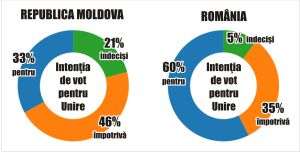Despite some improvements, our country still faces the vulnerability of fiscal revenues, and large budget deficits and high inflation rates, which are all above pre-pandemic levels, make the economy potentially vulnerable to shocks, the European Commission said in the report published yesterday. for Romania, regarding macro-economic imbalances.
Officials in Brussels note that although at the end of 2023, there has been progress in reducing the current account deficit, through the lens of monetary policy tightening and consumption reduction, risks remain high in the coming years due to unchanged fiscal policies.
In its analysis of macro-economic imbalances, the European Commission shows that the main problem regarding the high level of the current account deficit is the underlying fiscal deficit, which has not been sufficiently corrected in recent years. Officials in Brussels argue that the persistence of high government deficits can lead to an increase in foreign indebtedness and increase our country's dependence on external sources of financing, which would represent a major vulnerability for investors, but also for possible external shocks.
That is why the European Commission recommends the Bucharest authorities to implement a strict and credible fiscal consolidation program, which will lead to mitigating the risks regarding economic stability. In this sense, in the conclusions of the analysis carried out, the European experts show that it is necessary for the authorities in Bucharest to fully implement all the fiscal-structural reforms assumed by the PNRR and in particular those aimed at increasing budget revenues and stricter budget execution compared to recent years .
"Progress on fiscal consolidation would protect macroeconomic stability and allow for a gradual easing of monetary policy, while in parallel efforts are needed to maintain cost competitiveness, including through a mechanism for setting the minimum wage to be adjusted in consistent with the evolution of productivity," the quoted document states.
Establishing the minimum wage is a delicate procedure, which aims to achieve a balance between objectives that are sometimes opposed, and therefore expert advice can help decision-makers in this process, says a separate chapter of the analysis carried out by the European Commission , with officials from Brussels stating that the increase in the minimum wage is decided by the Government in a discretionary manner.
The quoted report shows: "When deciding on an increase, the Government uses a wide range of macroeconomic indicators (inflation, wages, productivity and the general evolution of the labor market), but does not follow a clear formula".
European experts state that last year the governments of Ciucă and Ciolacu increased the minimum wage by 32% (December 2023 compared to December 2022), which led to an increase of approximately 15% in the average nominal wage. Compared to the annual rate of inflation, this increase translates into an appreciation of the real salary of almost 5%, an evolution that exceeds productivity, European Commission officials say.
The European Commission states that there are risks and benefits of significant increases in the minimum wage. On the one hand, the minimum wage protects workers with low bargaining power and can reduce the poverty of people employed in the labor market. The objective of the minimum wage is to raise incomes and labor productivity and improve the well-being of workers at the bottom of the income distribution while reducing inequality.
"At the same time, the minimum wage may not be the most effective tool to reduce inequality and poverty. It tends to be a weakly focused instrument for this purpose and supports individuals rather than households and covers only employed persons", emphasizes the Community Executive.
The analysis draws attention to the fact that excessive wage increases could have negative effects on employment. In some situations, employers could respond to the increase in the minimum wage by firing the least productive employees. There is also the risk that too large increases in the minimum wage will reduce incentives for workers to upgrade their skills.
At the macro level, large increases in the minimum wage could contribute to the deterioration of external imbalances, immediately through increased absorption, and over time through losses in terms of cost competitiveness.
In the analysis carried out by European Commission also shows that, from the perspective of governance indicators, our country performs worse than the other EU member states, regarding the effectiveness and quality of regulation, corruption control and the rule of law, including the functioning of the judicial system and the protection of property rights . Citing the latest economic study on our country carried out by the OECD, the experts of the European Commission note that the business environment is still burdened by a complex system regarding the granting of the necessary authorizations and licenses, as well as obstacles regarding the performance of activities in certain economic sectors.
The European Commission's report states: "Efficient allocation to increase resources and labor productivity are hindered by the significant presence of state-owned enterprises with low performance. The volatile fiscal environment and the inefficiency of insolvency proceedings block investments (...), which are also blocked by the current state of transport infrastructure, the lack of skilled workers, the low level of digitalisation, weak IT skills and difficult access to finance for small and medium enterprises and for innovative start-ups".
The only performing activity sector in the analysis carried out by the European Commission is the banking sector. The experts of the Community Executive find that the Romanian banking sector is well capitalized, liquid and profitable. According to the data in the report, the capital adequacy ratio was 21.6% in the third quarter of last year, well above the minimum recommended threshold and the EU average, and the profitability reached the highest level in the last 7 years, with a profitability of equity of 18.3% in the third quarter of 2023, almost double the EU average. European Commission analysts also show that the rate of non-performing loans at the level of the entire Romanian banking system was 2.7% in the third quarter of last year and that the household debt/GDP ratio was 12.5% in 2023, the lowest in the EU .











































